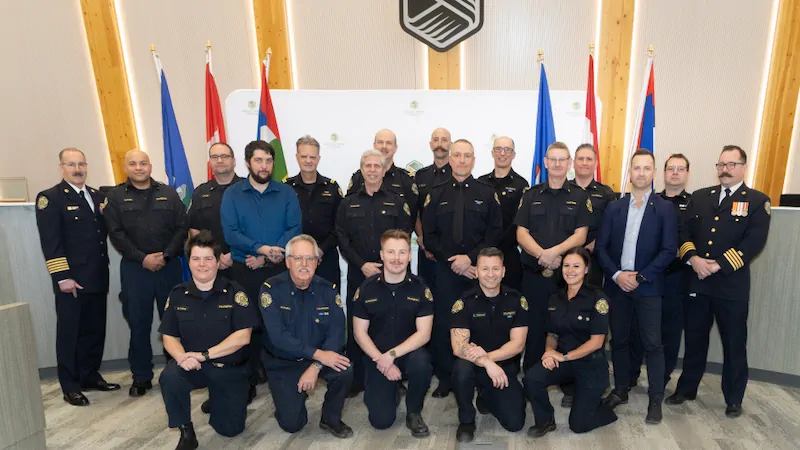Churchill knew the power of words and used them effectively during World War 2. In one of his speeches he said,” You ask, what is our policy? I can say: It is to wage war, by sea, land and air, with all our might and with all the strength that God can give us; to wage war against a monstrous tyranny, never surpassed in the dark, lamentable catalogue of human crime. That is our policy. You ask, what is our aim? I can answer in one word: It is victory, victory at all costs, victory in spite of all terror, victory, however long and hard the road may be; for without victory, there is no survival.”
Churchill’s words inspired hope and courage. They helped galvanize a nation and infuse them with perseverance and resolution.
On the other hand, we have the conversation of the young man with the young lady he is seeking to impress. He says, “My beloved, I have such great love for you. I’d swim across the raging river to be with you. I’d climb the highest mountain to have your company. I’d cross the barren, blistering desert for a moment with you.” She responds with, “That is so touching. Are you coming over tonight?” His response, “Certainly, I’ll be there if the rain holds off.”
Churchill’s words kept a nation persevering to victory. The boyfriend’s words were full of hot air. I often ask myself the simple question, “What kind of words are coming out of my mouth?”
There is an ancient proverb that says, “An appropriate word is like a golden apple in a setting of silver.” These are words that add value to life. To bring words of value we need to guard our tongues, discipline our minds and engage our will.
First, let’s look at words to be avoided.
Careless Words – In other words, put your mind in motion before you put your tongue gear. The same Churchill who released empowering words to the nation also put his tongue in gear before engaging his mind. A woman approached him and said, “Mr. Churchill you are drunk.” To which he replied, “I may be drunk but tomorrow morning I’ll be sober. Tomorrow morning you will still be ugly.” Like Churchill, we can use careless words to deflect from the real issues. Our quick responses help us avoid issues that are being addressed. Our “smart” responses are often like the thrusts of a sword. They put people on the defensive and precipitate conflict.
Crushing Words – These are words that strike at the heart of one’s value and identity. “How could you be so stupid?” “Your day dreaming will get you nowhere.” “Why can’t you be smart like your sister/brother?” “You’ll never amount to anything.” And the list goes on. Crushing words usually express our insecurity and frustration. The more secure we are in our own value and identity the less likely we will be to crush others with demeaning words.
Corrective Words – These are words that come alongside a person rather than coming down on them. They help someone analyze the causes of their failure and then look for strategies that will help them get back on the right path. Corrective words are more than a map that outlines a journey, they an affirmation of the other person’s value and a commitment to help them on the journey. It is one thing to tell a person what to do, it is another to show them how to do it. The words of a person who will help us fulfill our responsibility are more valuable than silver.
Caressing Words – This sounds like the language of a lover. You are right, it does. Caressing words are spoken to win the affection of the one to whom they are addressed. They are words that travel through the emotion to the will. Caressing words can be used to manipulate or they can be persuasive words that help direct our decision making. Consider these proverbs. “The wise in heart will be called understanding and sweetness of speech increases persuasiveness.” Or “The heart of the wise adds instruction to his mouth and adds persuasiveness to his speech.”
During my preteen years my parents were dissatisfied with my piano teacher and insisted that I change and start taking from a friend of theirs. This meant traveling to a neighbouring town and investing most of my Saturday afternoon to music. That meant limited time for hockey. When I arrived for my first lesson Miss Carey started by asking me about my life interests. She asked me what I would rather be doing than being there for a music lesson. I told her bluntly that I’d much rather be playing hockey. She then asked what position I played. I told her I was a goalie. She then said, “You must need real good coordination for that position.” My answer was in the affirmative. She then said, “Let’s test your coordination. We’ll both do a two-octave chromatic scale.” She was finished before I was halfway through.
She then said, “I see your co-ordination needs some work. In piano you need to coordinate your hands, eyes, and feet. That is the same as a goalie. Work with me and I can help your coordination.” She used caressing words to tap into my interest and connect hockey to music. Through it I developed a love for music that has been transferred to our children and their children.
Words are powerful. Select them carefully, direct them purposefully and watch them produce transformation in character and increased productivity in life. Life and death are in the power of the tongue. Choose to release life and I’ll see you at the top.
Duane Harder

We have heard and spoken the words, “He/she is full of hot air.” It is another way of saying that a person’s words don’t have the substance in life to back them up. Hot air will only take you so far before it lets you down.























